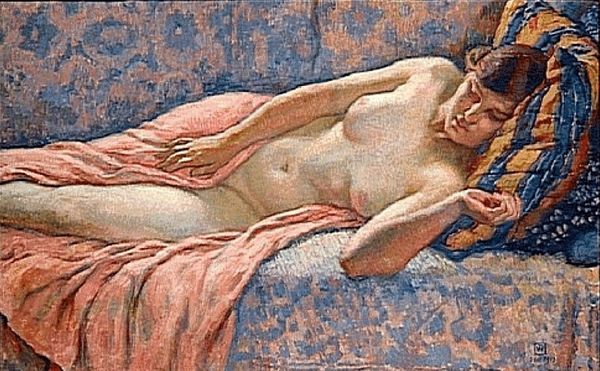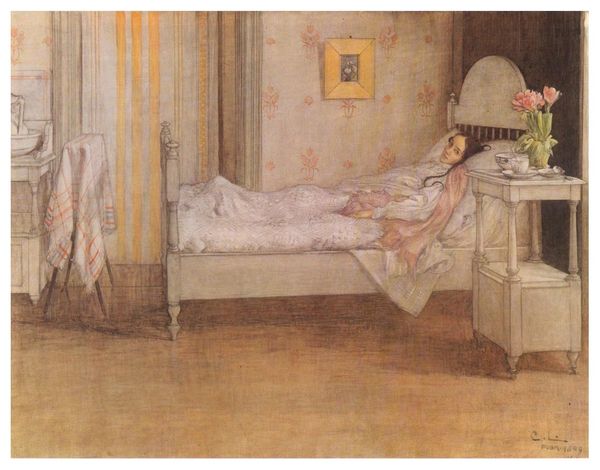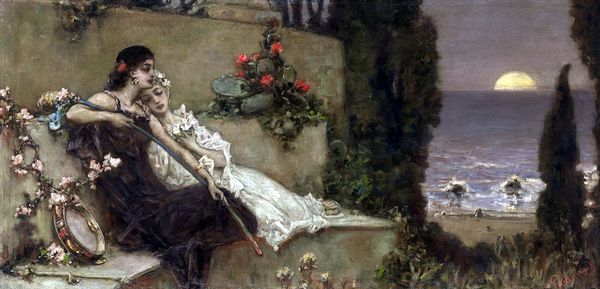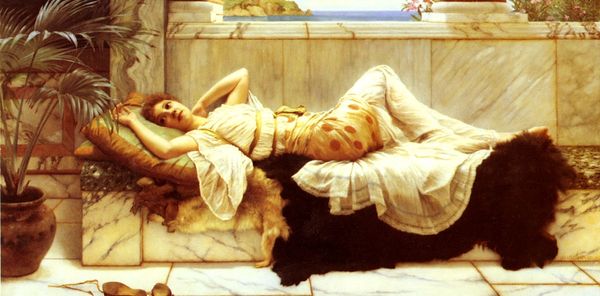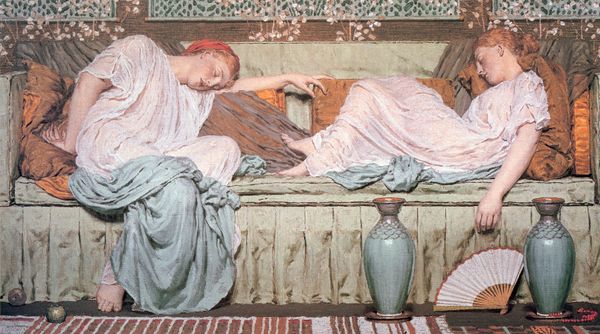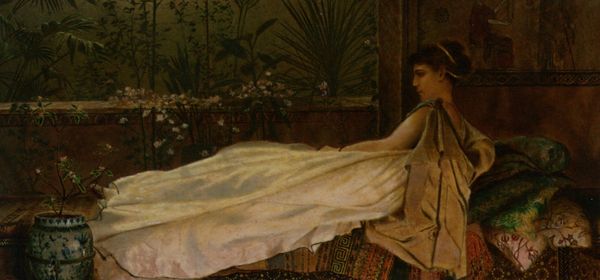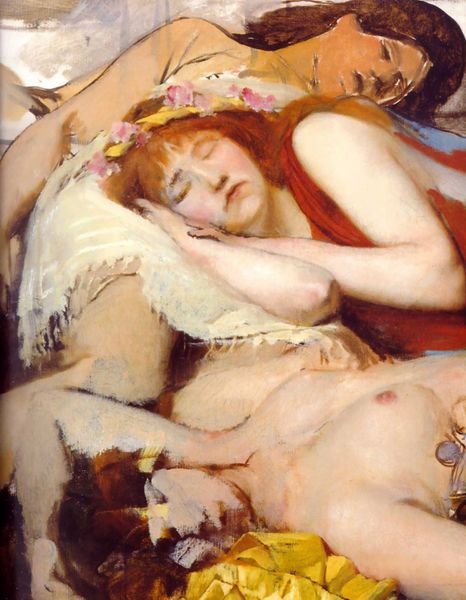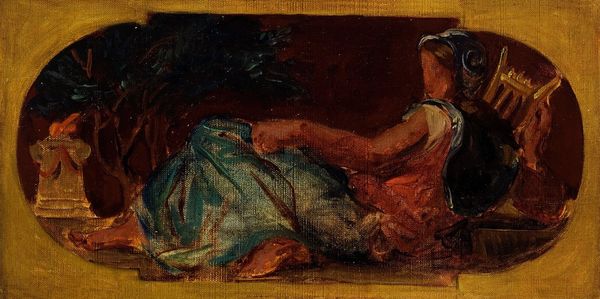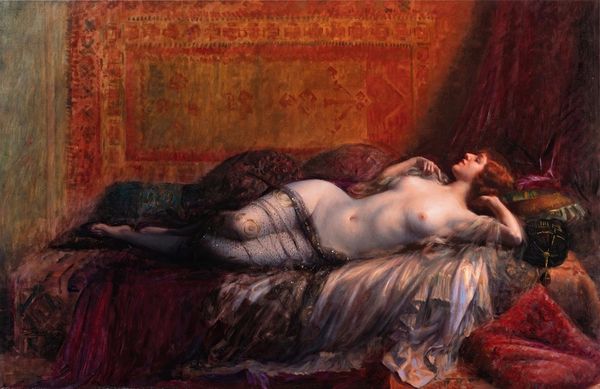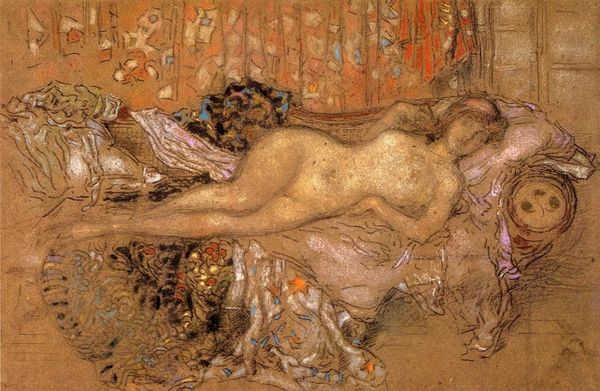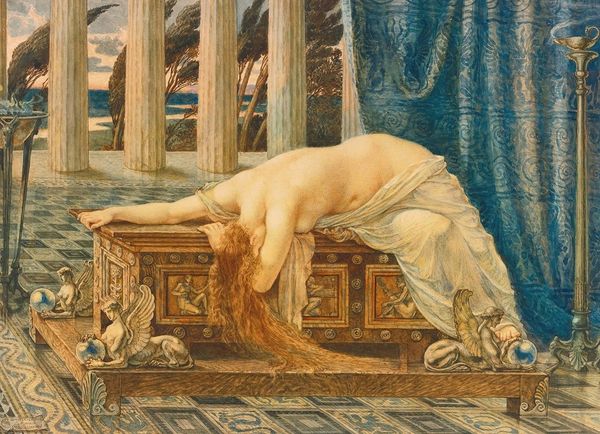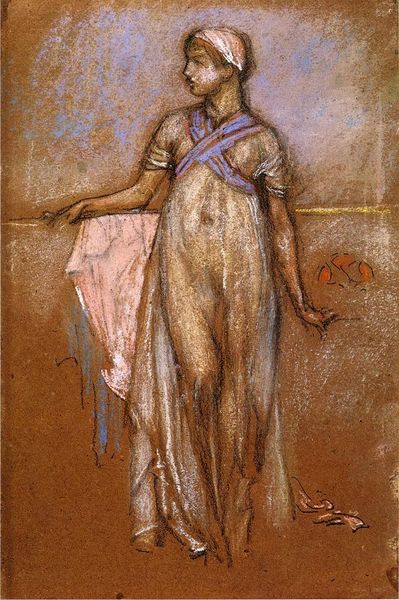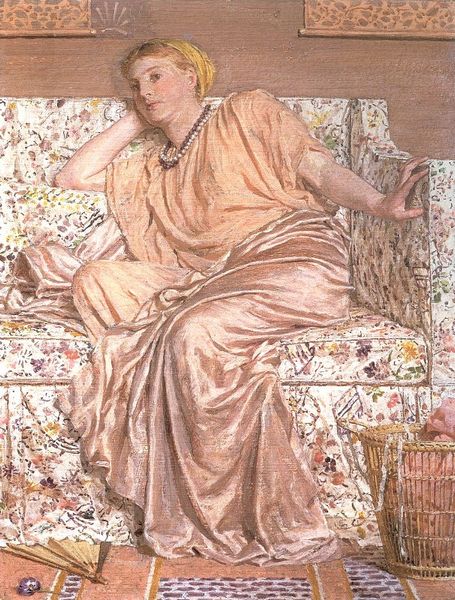
Dimensions: 47.8 x 29.8 cm
Copyright: Public domain
Albert Joseph Moore created 'Reclining Model,' a work held at the Clark Art Institute, using watercolor and graphite on paper. Moore was part of the Aesthetic movement which prioritized beauty and ‘art for art’s sake' over moral or narrative content. You can see this in the way he paints the model: she embodies a classical ideal, reclining passively, enveloped in soft fabrics and muted tones. However, there's more than meets the eye: Moore’s construction of idealized beauty invites questions about the role of women as objects of aesthetic contemplation. While appearing passive, the figure commands the viewer's gaze, subtly challenging the conventions of Victorian society, which confined women to domestic roles. How does the model's expression of quiet agency disrupt the expectations of her time? How might this image, created by a male artist, reflect or resist the complex power dynamics of gender and representation in Victorian England? Consider how Moore's artwork challenges the very notion of passive beauty, inviting us to reflect on the power dynamics inherent in artistic representation.
Comments
No comments
Be the first to comment and join the conversation on the ultimate creative platform.
